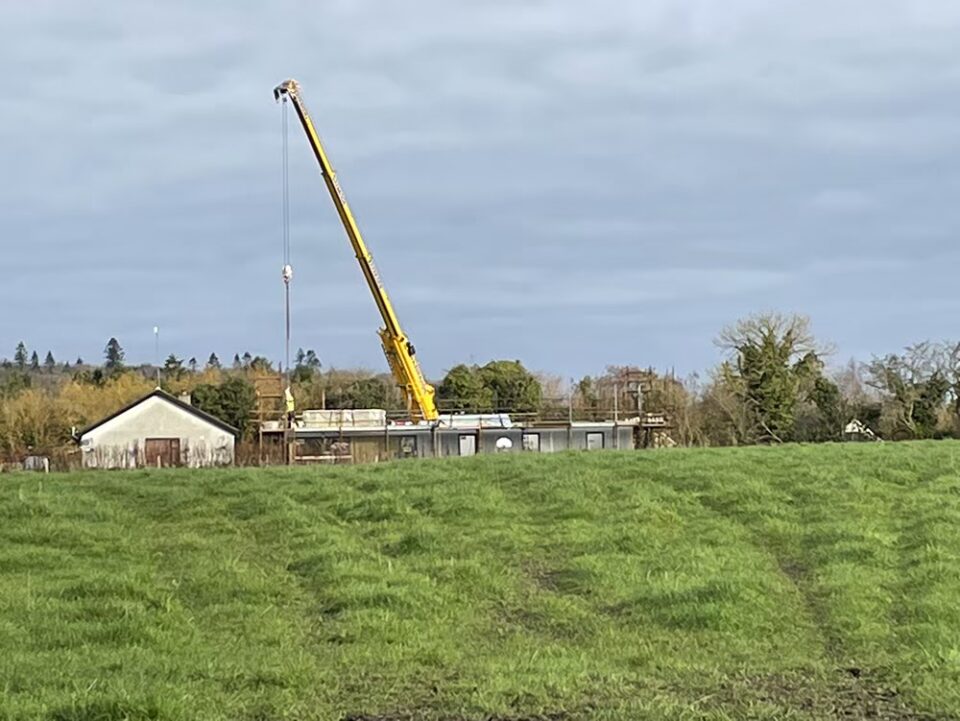In this article we cover:
- Cllr John O’Malley’s call to remove development levies for young couples in rural areas
- Financial impact of development levies on self-builders and local families.
- What ROI development levy fees (Section 48 contributions) are
- How much did the temporary waiver save self-builders
- Record levels of building thanks to levy holiday
- Sign the petition to extend the waiver for self-builders indefinitely
Independent Councillor John O’Malley has renewed his call to remove development levies for young couples building homes, stressing the financial strain on those trying to settle in rural areas.
As reported by the Connaught Telegraph and Western People, speaking at the December meeting of the Westport-Belmullet Municipal District, Cllr O’Malley criticised the levy, describing it as a barrier to homeownership for local families.
“Building a house already costs at least €300,000 if you’re fortunate enough to have a site. Adding the development levy on top of that makes it nearly impossible for young couples to get started,” he said. “We should be encouraging families to settle in rural Ireland, not penalising them with additional costs.”
Cllr O’Malley called for fairer solutions, such as exempting local first-time homebuilders from development levies while applying them to wealthy buyers or large-scale developments.
Self-builders currently have to pay Section 48 development levies to their local authority to pay for infrastructure costs such as roads. These can amount to tens of thousands of euros in certain areas.
According to analysis by Selfbuild, for a 200sqm house self-builders were paying on average €6,805 to their local authority for the Section 48 levy, ranging from €1,080 in Co Monaghan to €30,301.50 in Dún Laoghaire-Rathdown County Council’s new Cherrywood development area.
In April 2023, the ROI cabinet introduced a temporary 12-month development holiday as one of several measures to stimulate house building. The waiver period was extended a number of times, with the final deadline for commencement of qualifying new builds set for December 31, 2024.
Self-builders who started construction before that deadline now have until December 31, 2026, to complete their projects. The scheme originally required the house to be completed by the end of 2025.
The debate surrounding development levies remains a pressing issue for policymakers.
During his Budget 2025 press conference, the then Minister for Housing, Darragh O’Brien stated there would be no extension of the development levy waiver until the next government is elected.
He admitted that the levy holiday had “worked really well.” In particular, “it made a big difference to those who were building individual homes and paying for it themselves.” But he stressed that it was a temporary measure. “It’s not for me to extend it into next year … I would imagine that whatever government comes in post election, that could be a measure that could be looked at.”
Record levels of building were recorded in 2024 with 57,741 new homes commenced, including 5,233 one-off properties. That’s a rise of 84% from 31,429 in 2024.
We will have to wait and see what happens with the development levy as discussions continue between Fianna Fáil, Fine Gael and potential coalition partners to agree on a new programme for government.
In the meantime, Selfbuild is gathering signatures to extend the waivers indefinitely for self-builders only.




















